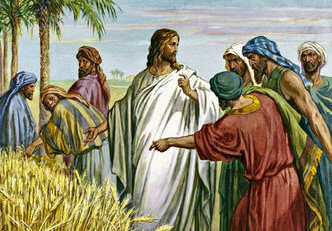
My friend “Pete” is in his early eighties and bemoans the fact that he can’t seem to “get anything done” any more. He remembers his earlier years when he worked hard to support his family. His self-worth was built on his identity as a “worker.” He would take satisfaction in “getting things done” in the workplace and at home.
Pete wonders where he fits into God’s picture now.
God is “pro work” and he is also “pro Sabbath.” In setting up the Law for his people, he told them to develop a rhythm of work and rest. Every seven days they were to give up “getting things done” and enjoy who they were as a favored people. They were not just ordinary humans, but chosen ones. They were so unique to God that he set up a covenant with them, and that covenant prescribed that they set a day aside each week just for him—they were children not slaves.
Even those people who were addicted to “getting things done” were told to let go of work and enjoy the presence of God on the Sabbath. Some may have worried that their pagan neighbors were “getting ahead” by working their fields an extra day. Yet, they trusted that God would take care of them if they stood by his plan.
Today the Sabbath issue comes up with Jesus and his disciples (Mark 2:23-28).
“As Jesus was passing through a field of grain on the Sabbath, his disciples began to make a path while picking the heads of grain. At this the Pharisees said to him, ‘Look, why are they doing what is unlawful on the Sabbath?’”
The Pharisees had crushed the Sabbath gift into a set of laws. They tried to reduce the living Word of God to a cold, hard legal code. Therefore, picking grain and enjoying the presence of Jesus on the Sabbath was technically “harvesting wheat”—a violation of Sabbath law. These grim-faced, religious “policemen” didn’t have a clue on what “enjoying” God meant. For them, God was a taskmaster.
Jesus responded to their question by recalling an incident in the life of David.
“Have you never read what David did when he was in need, and he and his companions were hungry? How he went into the house of God when Abaithar was high priest and at the bread of offering that only the priests could lawfully eat…”
God cared more about David than he did about His “pantry” that was set aside for priests. David knew God personally, and he knew God wanted to enjoy fellowship with him. God delighted in feeding David, his son.
God wants us to trust in him and to enjoy him. It is not our hard work that keeps our material needs taken care of; it is our heavenly Father—the same one who takes care of birds and flowers. Over-commitment to work can be a way of putting more trust in ourselves than in God. When we do “Sabbath” together, we acknowledge that we are in the hands of God and us each that he is taking care of us. Moreover when we take time to be still, rest, and enjoy his presence we bring delight to his heart.
Jesus did not let the legal-minded Pharisees keep him and his companions from enjoying the richness of Sabbath. How are we at enjoying God and the taste of “Sabbath” that he offers day?
“He has given food to all who fear him; he will forever be mindful of his covenant” (Ps 11:5).
